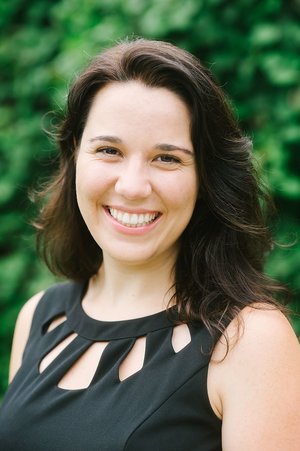Pivoting as a Pathway to Success: The Story of Sangali
- NYC RIN
- Nov 28, 2023
- 5 min read
Embracing the pivot is a key tenet of the I-Corps approach. A willingness to embrace transformative pivots has become a marker of success for Sangali, a startup that recently secured a $275,000 Small Business Technology Transfer (STTR) grant.
The story of Sangali, co-founded by Dr. Rabi Musah, professor of chemistry at SUNY Albany, and SUNY Albany Ph.D. graduate and current postdoctoral associate Dr. Allix Coon, began over a decade ago. Musah was trying to determine whether plants show species-specific chemical signatures that could be used by law enforcement as a basis for their identification.
Dr. Rabi Musah and Dr. Allix Coon
Musah showed that psychoactive plants exhibit these chemical fingerprints, creating a database of psychoactive plant chemical signatures. Samples could be screened against this database and identified in seconds. She began collaborating with scientists at the U.S. Fish and Wildlife Forensic Lab (FWFL), who had also realized that species of wood tissue could be similarly determined. They published their findings in Scientific Reports.[1] “In the course of working with FWFL, I learned about wildlife forensics and the challenges of reining in illegal logging,” said Musah.
Not only is illegal logging decimating the environment and causing the extinction and near extinction of many endangered, rare woods. It is also a leading source of funding for global terrorism. Measures by global law enforcement to restrict trafficking in illegal woods can be tough to implement. The most common method is to evaluate wood “anatomy”— checking the physical characteristics of wood samples to assign species identity. As that is time-consuming and requires expertise held by few border protection agents, illegal trafficking of endangered woods is difficult to control.
Growing up in Ghana, Musah understood the damaging impact of illegally harvesting endangered rainforest trees. In 2015, around the time that Dr. Musah was identifying chemical signatures of woods, she met Allix Coon. Coon was a sophomore in SUNY Albany’s Chemistry honors college and was interested in joining a research lab.
“Our first conversation was phenomenal,” said Coon. “I was doing a business minor, which is almost unheard of for a chemistry major. I was this little 19-year-old and Dr. Musah said to me, ‘Would you ever be interested in running a company?’ I had never envisioned that, but my parents are entrepreneurs; my dad ran a mechanic’s shop, so I was familiar with that territory.” Musah invited Coon to join her lab.
“In 2021, partially because of COVID, I was considering a transition to more of a managerial role,” said Coon. “Dr. Musah knew of multiple resources for startups, and one was I-Corps. In 2021, we participated in a regional cohort. We would never have gotten our Phase 1 NSF grant without that experience.”
Said Musah, “We invented a method to reveal the chemical signatures associated with particular tree species using a sample the size of a matchstick head. Our goal was to build a database of chemical fingerprints, so that when you get an unknown sample, you can screen against it. It’s just like using fingerprints to identify a person. If a person’s fingerprint is in a database and that person commits a crime and leaves their fingerprint, the print can be screened against the database of known prints to identify the person.”
“Our thought going into I-Corps was, there are all these endangered woods, and people trying to import wood legally would want to stay on the right side of the law,” said Musah. “Our model was to build a database centered upon our technology and provide the service to whoever needed it.”
But again, an opportunity arose for a pivot, driven by Musah and Coon’s I-Corps experience. During their seven-week regional I-Corps session, they conducted an intensive customer discovery process with 90 interviews. The feedback was definitive: industry consultants were eager to try an identification service, and government agencies that assess compliance with logging and importing laws would be willing to add their service. But the unexpected next pivot came from the strong interest in using Musah’s technology to identify the species comprising composite domestic woods, such as plywood.
“People kept asking about composites—that’s the bulk of what is sold, but [for someone trying to illegally import endangered woods] it’s essentially a get-out-of-jail-free card,” said Musah. “Once wood loses all its anatomical features, it can be difficult if not impossible for it to be traced.”
Consumers also care about this identification. One could buy a brand of composite wood for a particular use, and then return to the store months later to get more of it, only to find that the composites available for sale are totally different, even though the brand is the same. This happens because composites are often created from scrap wood, and there is no oversight of how they are made. “Most of the prospective customers we interviewed were very interested in knowing the components of composite woods,” said Musah.
Coon described how their I-Corps experience gave them a new perspective on their goals. “The pivot to composites came from doing all those customer discovery interviews,” she said. “I-Corps made us think in a completely different way. We learned what’s important to investors and grant makers; we learned how to convey our scientific ideas to a business audience. From each speaker to each weekly lesson, we used every minute to our advantage. And of course, we learned the value of pivoting. In the absence of that I-Corps feedback, we would not have known where to focus our attention or our STTR proposal.”
That third pivot, and the identification of a significant commercial client in the home improvement industry, led Sangali to apply for and secure its STTR grant.
“Scientists sometimes have trouble translating their work into a story that is accessible to people outside of their field,” Musah said. “You’re taught that if you talk about your work from a 30,000-foot level, in the absence of details, the scientific world will think you don’t know what you are talking about. I-Corps turns that around and supports talking about it that way.”
“Allix and I also had the advantage of both coming from entrepreneurial families; we know it doesn’t diminish our intelligence to speak about the work from different vantage points,” Musah added.
The name Sangali derives from Dagbani, Musah’s father's native Ghanian language. It translates to an important task or responsibility, which is one of the company’s core values. As the only two employees of Sangali, Musah, the CEO, and Coon, the COO, are now focused on executing the first phase of their business plan—establishing a database of domestic woods, the raw material of most composites in the US. They are also starting to strategize for their second phase, providing analysis of wood samples on site, rather than having to have samples shipped, and ultimately developing a field-deployable device that will scan wood products for species identification based on the presence of specific biomarkers.
[1] Musah, R.A., Espinoza, E.O., Cody, R.B., Lesiak, A.D., Christensen, E.D., Moore, H., Maleknia, S., and Drijfhout, F. A High Throughput Ambient Mass Spectrometric Approach to Species Identification and Classification from Metabolome Profiles. Sci Reports (2015), 5, 11520, doi: 10.1038/srep11520.







